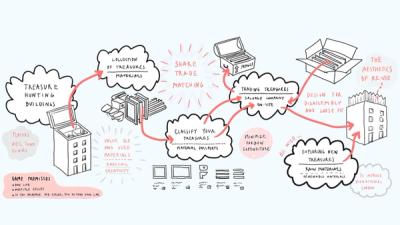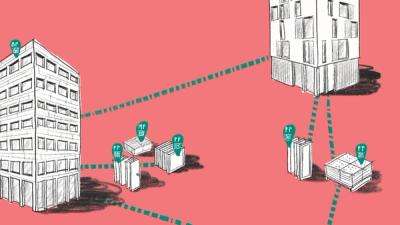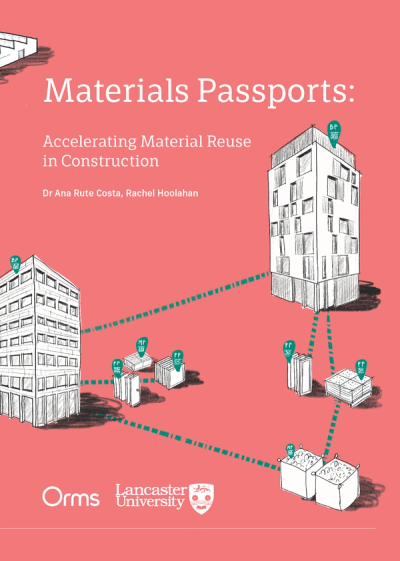
To address the climate emergency, we believe that a circular economy is a necessity, not a choice. Material Passports offer an opportunity to gather and organise data about materials contained within a building.
Research to date has largely focused on gathering data on new products for future reuse. However, 80% of buildings that exist today will still exist in 2050, so it is imperative that we make the most of the materials already in existence.
Our goal was to develop an opensource methodology to Material Passporting for existing buildings and make it accessible to design teams of all sizes and capabilities. We have developed a strategy that centres around the development of a Material Database, with Material Passports acting as a user interface to filter relevant information for the reader.
View our vision for a Material Passport here
The material database is the core of the circular process, which grows as the project evolves.
As an industry, we must do better, and the fastest way to achieve this is by sharing our knowledge and collaborating on meaningful solutions – and so we invite you to implement Materials Passporting on your project.
All we ask in return is that you share your experience, findings and solutions so that the research can continue to evolve. To join our network by getting in touch at materialpassports@orms.co.uk
This is an exciting time, and we look forward to collaborating with partners as we advance towards a circular economy.
This work has been developed as part of our collaboration with Grosvenor Britain & Ireland, which is seeking to boost circular economy practices in the built environment by trialling a second-hand market for materials in Central London.
Together with Elliott Wood, Arup and HETA, we are working to identify opportunities for learning and knowledge sharing to put material reuse into mainstream practice. The first step is this guide, one in a series addressing the key barriers to reuse and developing a second-hand materials market in construction.
Watch the launch webinar below.

